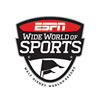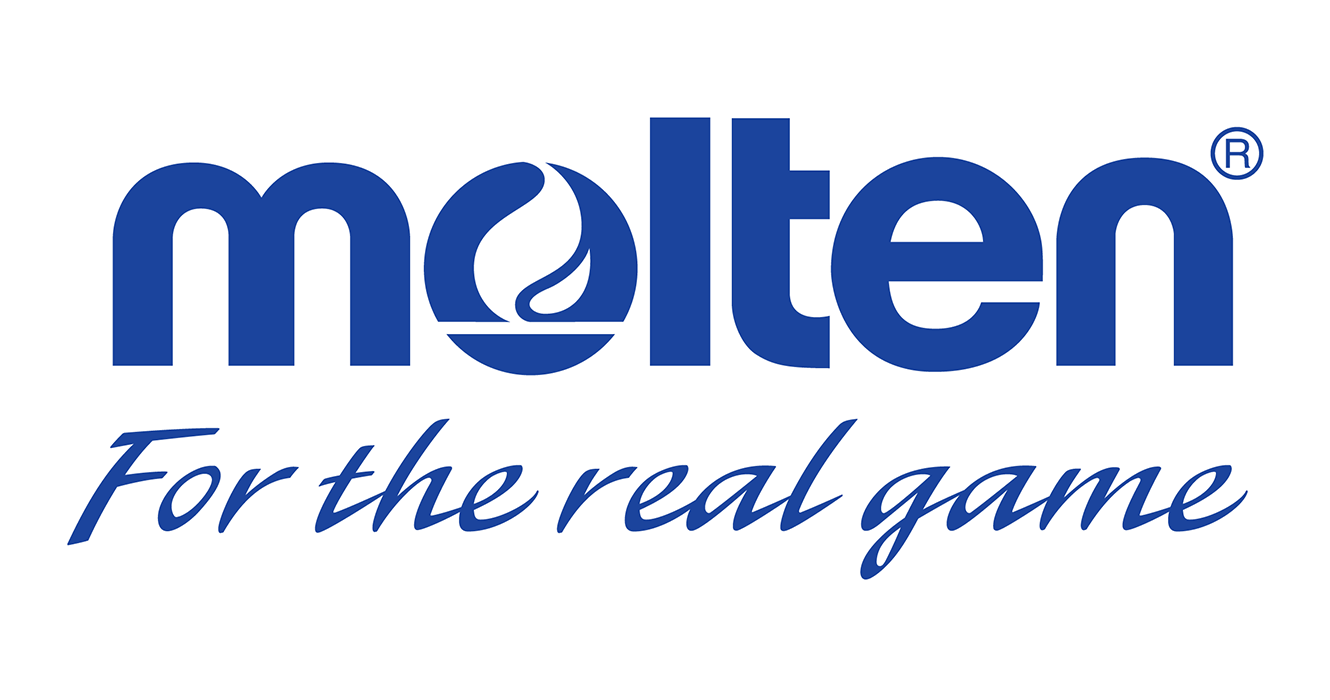Black History Month Spotlight: Charlie Ward
02/08/2024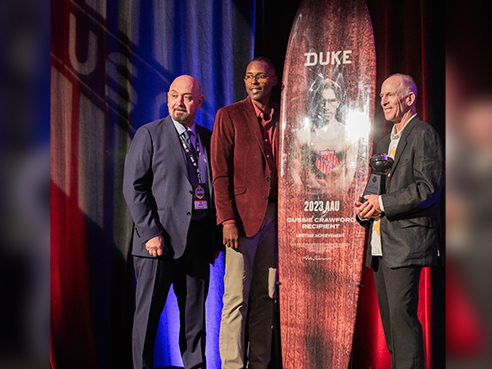
Black History Month is an annual celebration of the achievements by Black Americans and a time for recognizing their role in U.S. History. This week we are commemorating Charlie Ward.
By Ryan Sweeney
A dual athlete who is the only human on earth to win a Heisman and play in the NBA, Charlie Ward is a multi-sport athlete that excelled on the gridiron and hardwood throughout his illustrious college career. From multi-sport award winner to public and motivational speaker, Ward continues to add to his legacy every day.As the month of February continues, so does the celebration of Black History Month, a time to honor the triumphs and contributions of African Americans throughout history. Charlie Ward’s achievements in sports place among the best athletes of the generation. However, his work off the field and court is what takes Ward’s legacy to the next level.
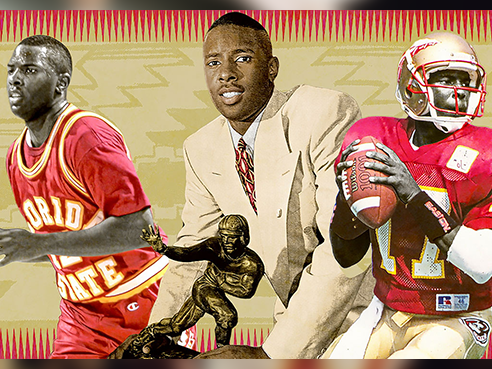
Charlie was born on October 12, 1970, in Thomasville, Georgia, where he would go on to become a multi-sport athlete and an influential figure in both basketball and football. Ward’s athletic abilities were evident from a young age. He excelled in both football and basketball at Thomas County Central High School, where he earned recognition as one of the most promising young talents in the state of Georgia.
Charlie went on to start his college career at Florida State University, where he first saw the field as the team’s punter. Forgoing his planned redshirt freshman season, Ward was accomplishing things on the field people had rarely ever seen.
“They always play the first and second team versus the rest, Charlie was on the rest, and almost single-handedly won the game against the varsity,” said former Florida State offensive coordinator and quarterbacks coach. “And usually, you spot the rest some points because you’re trying to make it competitive, but the varsity just about lost the game to the team Charlie was quarterbacking.”
Charlie’s choice of Florida State University was based upon his decision to play both football and basketball at the collegiate level. This decision had him following up his freshman year of football by switching gears and hitting the hardwood with his new teammates. He added a different style to the team, one more focused on distributing the ball. “My job was to get those other guys the ball, I shot, but I was a football guy. So me coming out there just jacking up shots wasn’t going to help us be productive.” Ward said.
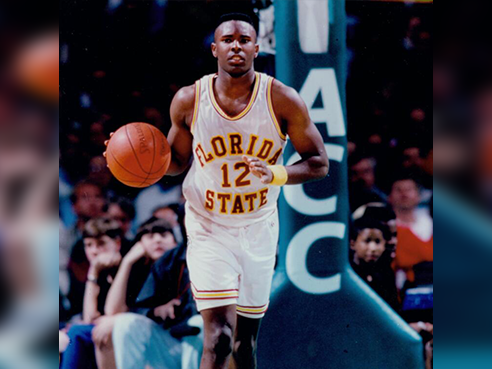
In 1992, Ward would begin to etch his name in college sports history and break barriers in the game. Charlie took the field as Florida State’s starting quarterback, making him the first Black player to start at the position. After a rocky start to his first season, Florida state’s head coach figured out the key to unlocking the best in Ward. Charlie sat in the shotgun, no huddle, four wideouts and one running back. This type of formation pushed the pace for Florida State and helped them make a giant comeback against Georgia Tech who was leading 21-7 with 14:30 remaining in the fourth quarter. He completed 14 passes for 137 yards and led the Noles to a major comeback win. Ward entered the game and took command of his offense and sparked the birth of Florida State’s new offensive style. The comeback win against Georgia Tech started Florida State on a path of rampage as they followed up their comeback win with a 69-21 win over Maryland, 70-7 win over Tulane. Then a 45-24 win over Florida and finished out the season with a 27-14 win over Nebraska in the Orange Bowl.
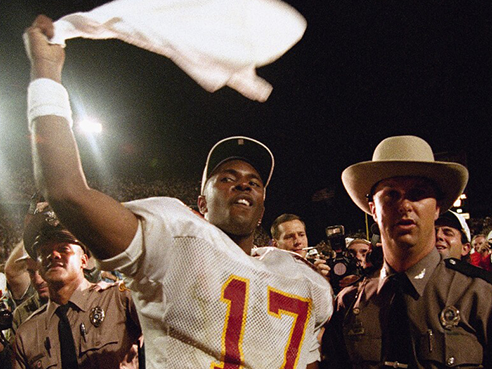
In his final college football season, Ward finished with a career total of 473 completions, for a 62.3% completion rating, 5,747 yards passing, 889 yards rushing, 49 passing touchdowns and 10 rushing touchdowns. Following his national title win for the Florida State football team, Charlie took home his own awards in 1993. He won the 1993 Heisman Trophy, Maxwell Award, and Davey O’Brien Award. The Maxwell Award is presented annually to the college football player who is voted to be the best all-around player. The Davey O’Brien Award is presented to the best Quarterback in the nation for college football. In that same year he was awarded the 64th AAU James E. Sullivan Award for both football and basketball. The Sullivan award has been awarded to the top athlete at the collegiate or Olympic level since 1930.
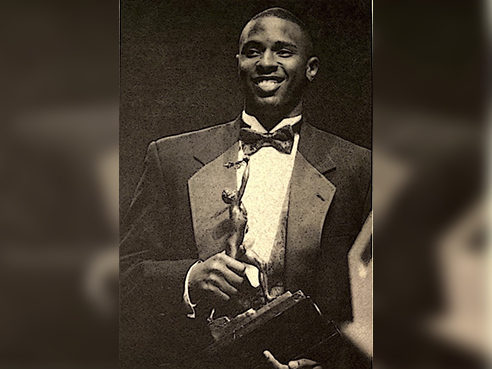
When the 1993 football and 1993-94 basketball seasons ended, Ward decided to take his career to the next level. On a phone interview with ESPN2 midway through the seventh round of the NFL Draft, Ward said, "Basketball and the Canadian [Football] League are now a big option. A lot of teams in the NBA are telling me I have to concentrate on one sport. Maybe I will. Some [NFL] teams might have been interested, but they weren't willing to take a chance. Maybe I'll be the first Heisman winner that plays in the NBA."
That’s exactly what happened. In June of 1994, Ward was selected 26th overall by the New York Knicks. Making him the first and only person to win the Heisman trophy and play in the NBA. He spent 12 seasons in the NBA where he would reach the NBA Finals with the Knicks, and play San Antonio Spurs, and the Houston Rockets before retiring after the 2005 season.
After his playing career, Ward has spent time establishing foundations such as The Charlie and Tonja Ward Family Foundation, whose mission is, “public charity, rooted in Christian values, supporting youth character development through sports, the arts, education and wellness to benefit underserved youth and supporting disaster relief initiatives.” Charlie currently travels across the country to speak and help educate student athletes, coaches, and corporate teams with his leadership message of winning with preparation, perseverance, and patience.
Charlie Ward and the AAU have continued to maintain a relationship. In October 2023, Charlie attended AAU’s 2023 Leadership Conference as a keynote speaker. He spoke about his life experiences and helped present the 6th Annual AAU Crawford Award to Billy Berger on behalf of Duke Kahanamoku. He also returned to the AAU Sullivan Award ceremony, 30 years after his own win, to help honor the most recipient, Caitlin Clark.

